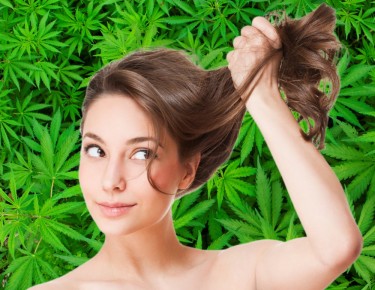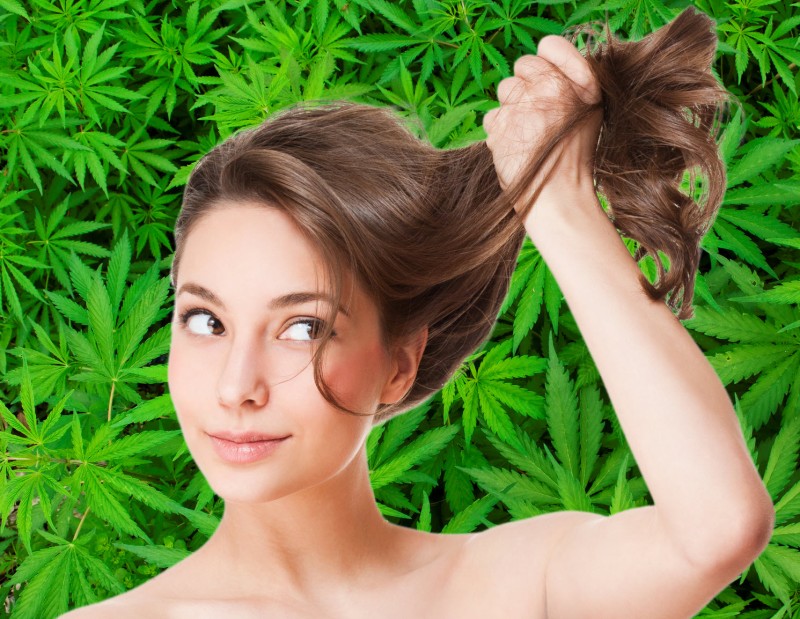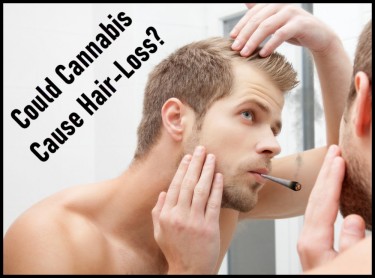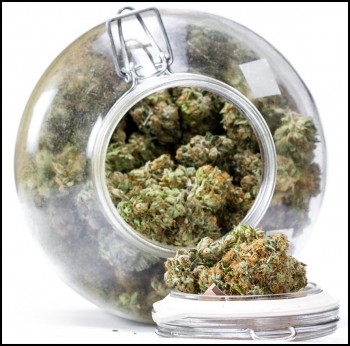
Whether used for recreation or medicinal purposes, an abundance of scientific and anecdotal evidence indicates that marijuana possesses properties with potential anti-anxiety, anti-psychotic, and anti-cancer effects. Cannabis, available in various forms, can also offer relief to adults grappling with chronic pain, seizures, muscle spasms, and glaucoma.
Concerning its impact on hair, there are conflicting accounts among regular smokers. Some assert that marijuana thickens their hair, while others report no notable changes, either positive or negative. On the flip side, there is evidence indicating that the use of marijuana might occasionally be associated with hair loss.
The fact remains that individuals demonstrate markedly diverse physiological and emotional responses to marijuana, encompassing the varied reactions of their hair follicles to its influence.
Exploring the Relationship Between Cannabis Use and Hair Loss
Although scientific evidence does not directly link marijuana to hair loss, the use of cannabis through smoking, vaping, or ingestion may impact hair health due to elevated stress and anxiety levels it can induce in specific individuals.
Additionally, marijuana use is associated with nutritional deficiencies, contributing to hair loss. Here is an overview of marijuana's effects on hair loss:
Marijuana's Impact on the Body's Nutritional Status
A significant pathway through which marijuana may contribute to hair loss is its influence on the body's nutritional status. Users often develop poor eating habits, including heightened cravings for unhealthy foods and subsequent weight gain.
These dietary shifts can result in nutritional deficiencies that ultimately affect the overall health of the hair.
Disruption of the Normal Hair Growth Cycle
Furthermore, marijuana use has been observed to disrupt the normal hair growth cycle. The active ingredient in marijuana, tetrahydrocannabinol (THC), binds to receptors in the body's endocannabinoid system, which is responsible for regulating hair growth. When THC binds to these receptors, it can alter the typical hair growth cycle, leading to increased hair shedding and thinning.
Impact on Hair Shafts
Another potential contributor to hair loss associated with marijuana use is its effect on the hair shafts themselves. Research indicates that THC can cause damage to the hair shafts, rendering them more susceptible to breakage and split ends. This damage can result in hair thinning, shedding, and an overall loss of hair volume.
Physiological Effects
Marijuana encompasses over a hundred cannabinoids, with THC and CBD being the most recognized. These cannabinoids bear similarities to a class of chemicals naturally produced by the human body known as endocannabinoids, which attach to receptors in various organs, including hair follicles.
According to a 2007 study conducted by the University of Debrecen, THC in marijuana attaches to these receptors, inhibiting the proper development and growth of the human hair follicle, thereby inducing hair loss.
Lifestyle Effects
Contrary to popular belief, THC, a component of marijuana, can increase cortisol levels in the body. Cortisol, a hormone naturally produced during periods of stress, affects the function and cyclic regulation of the hair follicle.
This elevation in cortisol levels can trigger telogen effluvium, an acute form of hair loss occurring when hair follicles prematurely enter the telogen phase of the cycle.
Frequent cannabis use can also lead to suboptimal nutritional choices. A diet lacking essential vitamins and minerals may result in poor hair health, manifesting as dryness, breakage, and even thinning or loss.
Taking Action: Addressing the Potential Impact of Marijuana on Hair Health
If you suspect that marijuana use might be negatively affecting your hair, there are proactive steps you can take to mitigate potential issues.
- Maintain a Healthy Diet: In the context of addressing hair health, maintaining a nutritious diet is crucial. Adopting a lifestyle that includes regular exercise and a balanced diet rich in vitamins and minerals is one of the most significant steps you can take. This not only ensures that your body has the necessary nutrients for healthy hair growth but also helps prevent weight gain and other adverse effects associated with marijuana use. Consider delving deeper into the relationship between diet and hair loss for a more comprehensive understanding.
- Limit Marijuana Use: Another essential measure is to limit or altogether cease marijuana use. Research indicates that reducing marijuana consumption can mitigate the negative impact on the hair growth cycle. Studies outline the risk of damage to the human hair follicle as deposits accumulate on the hair shaft. Moderation or cessation may help preserve hair health and prevent potential complications.
- Consider Alternative Consumption Methods: If cannabis is a part of your lifestyle, consider alternative consumption methods such as edibles or oils. Many of the adverse effects associated with cannabis use are believed to stem from the harmful chemicals released during combustion. Opting for alternative methods can potentially reduce these harmful effects. However, it's crucial to exercise caution and avoid overconsumption.
- Identify the Root Cause of Hair Thinning or Loss: While marijuana might contribute to hair issues in some cases, it is often not the sole factor. Consult with a healthcare professional to identify the type of hair loss you are experiencing, determine the underlying causes, and explore suitable treatment options. Understanding the root cause is essential for developing an effective and targeted approach to hair care.
- Be Mindful of Genetic Predispositions: People vary in their susceptibility to hair loss related to marijuana use. If you have a family history of hair loss or other genetic predispositions to hair thinning, you may be more prone to experiencing such issues. In such cases, it becomes especially crucial to limit or cease marijuana use and focus on maintaining a healthy lifestyle. Consulting with a hair specialist or doctor can provide personalized advice tailored to your specific genetic background.
It's important to note that regardless of the method of marijuana consumption—whether smoking, vaping, or ingestion—some individuals have reported a link between marijuana use and hair loss. This connection can be attributed to factors such as poor eating habits, nutritional deficiencies, disruption of the normal hair growth cycle, and potential damage to the hair shafts.
Conclusion
To effectively prevent or mitigate hair loss associated with marijuana use, a holistic approach is essential. This includes maintaining a healthy diet and lifestyle, limiting marijuana use, and prioritizing proper hair care and growth. For individuals with genetic predispositions, seeking guidance from healthcare professionals ensures a more tailored and informed approach to maintaining optimal hair health.






